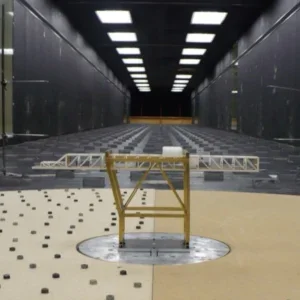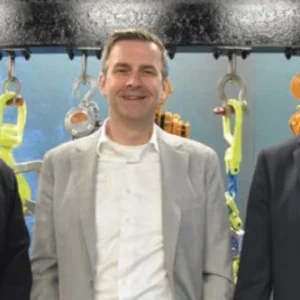Certification of overhead crane operators is on the agenda in the USA. The State of Michigan’s Occupational Health & Safety Administration (MIOSHA) published a new law earlier this year requiring that all overhead crane operators are not just trained but also certified. And now the National Commission for the Certification of Crane Operators (NCCCO) is investigating extending its nationwide mobile crane operator certification programme to overhead travelling cranes and tower cranes.
NCCCO has put more than 17,000 mobile crane operators through its examination procedure since beginning its certification programme in April 1996. Of these, more than 11,000 have passed and are now CCO certified. This programme has the backing of most of the major construction industry contractors and clients, the crane rental companies and federal OSHA. Many construction companies and client organisations specify that all mobile crane operators on their sites must be CCO certified.
NCCCO has now set up an overhead crane task force which is in the early stages of analysing the job of overhead crane operators, with a view to producing a certification process.
NCCCO is in talks with the Crane Manufacturers Association of America (CMAA) about a possible cooperation. Peter Kerrick, who chairs CMAA’s crane manufacturers’ service committee, confirmed that discussions were taking place. “We as crane manufacturers, specifically those of us that offer training for customers, could be interested in third party certification,” said Kerrick, who is also vice president service, training and national accounts at Morris Material Handling.
Key topic of discussion between CMAA and the NCCCO is the likely cost. NCCCO’s mobile crane operator certification programme received significant funding from mobile crane manufacturers.
“The programme would require funding,” said Kerrick of a possible overhead crane initiative. “We want to know what it is going to cost and whether it is worth us pitching in and funding it.” In April 2002 MIOSHA amended its General Industry Safety Standards Part 18: Overhead and gantry cranes, tightening up and formalising the requirements for crane operator training. Among the requirements of this standard, it says employers “shall train a prospective operator before the employee’s assignment as an operator of a crane. An employer shall ensure that a designated individual authorised by the employer to perform the training has the knowledge, training and experience to train and to evaluate the competence of the prospective operator and to provide refresher training to an operator when it is required.” Section R 408.11852 of the Michigan standard goes on to list all the aspects of crane operation in which an operator shall be trained.
It then states: “Training shall consist of a combination of formal instruction, practical training, and testing of the operator’s performance” A section on permits has also been added to the standard. Operators deemed to have passed the test are given a permit by the employer which they must have available during working hours. Details on the permit include the types of crane that the operator is qualified to use. Permits last a maximum of three years. Operators have to be re-tested when their permits expire.
It is not known how rigorously crane owning companies in Michigan have embraced the new standard. Certification is conducted by the crane owners themselves and there is no third party auditing. The NCCCO’s mobile crane programme – and one expects any further programmes it develops to follow similar principles – has been embraced by the industry because while training remains a commercial enterprise, the testing and certification process is independent and conducted by a not-for-profit organisation.






